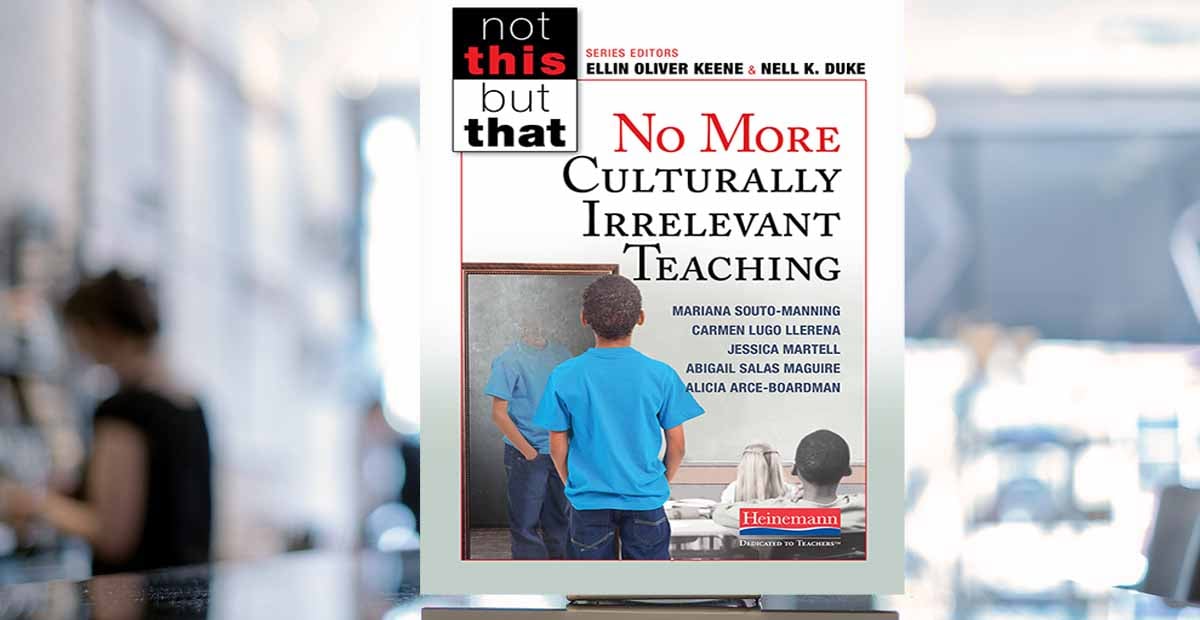
Children are cultural beings with amazing histories and practices, and no two children are the same. Of course, no two classes are the same either, no two schools, no two teachers. But efforts to “normalize” curriculum and “standardize” learning would seem to suggest the opposite. These efforts presume that the knowledge that counts is in the text- books and other curricular materials. Too often these efforts leave little room for curriculum to be enhanced by the knowledge, experiences, and questions that students bring to the classroom.
We’ve all experienced waves, at times full cycles, of curricula coming through our schools like revolving doors—constantly in motion. One year, we learn a new math curriculum. The next year, we implement a new reading curriculum. The year after, we start a new science curriculum. The following year, we invest in a new social studies curriculum. And, before you know it, we’re throwing out the “new” math teacher’s editions and opening shiny and colorful boxes of another company’s recently developed units.
With each new initiative, new curriculum and assessments are rolled out, marketed as the silver bullet for addressing the new standards, sold to schools, and expected to be implemented in classrooms. Training sessions are scheduled where “experts” who don’t know our practices, our students, or our communities walk into our professional homes and attempt to sell us on a one-size-fits-all approach. Sound familiar?
We open those boxes and realize they do not include the children we teach—children with disabilities, emergent bilinguals (English language learners), children of color—but what do we do? We believe curriculum should be meaningful, engaging, relevant, and relatable to our students. We want all children to be engaged and to learn. But unfortunately, the expectation that we must stick to the assigned curriculum looms large and often feels insurmountable. Against our better judgment, we find ourselves navigating mandated curriculum that is not relevant to the children we teach, failing to engage our students and wasting valuable teaching time.
•••
As teachers, we may be reluctant to engage in culturally relevant practices because we realize we don’t know enough about our students’ cultures to address them meaningfully. We care about our students and we fear perpetuating stereotypes. We fear doing or saying the wrong thing. The answer to this fear, however, is simple. Becoming “culturally competent” takes time and requires us to position ourselves as learners. We don’t have to know everything about every group of people to engage in this work, but we do need to be willing to learn and ready to facilitate learning about cultures in our classrooms.
We may also fear that our students aren’t old enough or mature enough to understand or discuss the problems connected to culture in our society. We may fear upsetting parents when we engage their children in discussing issues of race or sexual orientation. We may fear that we will be seen as promoting our personal agendas. We may also fear that our students will feel uncomfortable addressing these matters, whether they directly affect the communities they live in or not. Any one of these fears can get in the way of culturally relevant teaching, so it’s important to acknowledge them.
For it to make sense, we have to see culturally relevant teaching as a reframing or as an overlay—not an addition—to the existing curriculum. We must think of the mandated curriculum as a starting place, not an ending place, and find ways to include new perspectives and materials, making curriculum and teaching more inclusive and representative.
•••
Learn more about No More Culturally Irrelevant Teaching at Heinemann.com
Mariana Souto-Manning, a former classroom teacher, is Associate Professor at Teachers College, Columbia University and Chair of the National Council of Teachers of English (NCTE) Research Foundation. You can find her on Twitter at @soutomanning.
Carmen I. Lugo Llerena teaches Kindergarten at PS 75, The Emily Dickinson School, in New York, NY.
Jessica Martell teaches second grade at Central Park East 2 in New York, NY.
Abigail Salas Maguire teaches fourth grade at PS 75, The Emily Dickinson School, in New York, NY.

